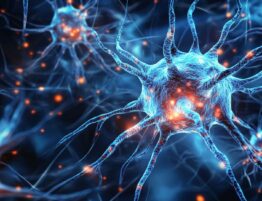Crohn’s ailment is a chronic inflammatory bowel disease (IBD). It usually affects any part of the digestive tract. It’s from the mouth to the anus. It’s characterized by tenderness that causes:
- Ulcers.
- Fissures.
- Fistulas.
The exact cause remains unknown. However, it’s believed to be a result of a combination of genetic, environmental, and immune system factors.
Our guide will delve into various aspects of this ailment, including:
- Understanding the issue. This section will provide a detailed overview of the ailment, its signs, and evaluation.
- Healing options. This block will explore the different approaches available to you.
- Living with ailment. This block will offer practical advice on coping signs, finding support, and keeping a good quality of life.
By the conclusion, you will have gained a deeper understanding of the ailment and the tactics you can implement. You will have key knowledge regarding healing options, self-care techniques, and support resources. Those can help you navigate the challenges associated with your condition and boost your overall well-being.
Understanding Crohn’s Disease
This is a chronic inflammatory condition. It can affect any part of the digestive tract. It is a complex problem that can have a significant impact on a person’s quality of life. This can cause a variety of signs. It includes abdominal pain, diarrhea, fatigue, and weight loss.
In the next blocks, we will explore the specifics in greater detail. We will discuss the various signs that may be, as well as the potential causes and risk factors that contribute to its development. Also, we will delve into the evaluation process involved in identifying ailment and the available healing options.
What Is Crohn’s Disease?
It is a chronic bowel disease (IBD) that can affect any part of the digestive tract. It can affect the areas from the mouth to the anus. It’s characterized by inflammation that can cause ulcers, fissures, and fistulas. Now, the cause remains unknown.
Unlike ulcerative colitis, another IBD, this ailment can affect any part of the digestive tract, often in patches. This can lead to a variety of signs, depending on the location.
Crohn’s Disease Symptoms
The signs can vary widely from person to person. And they may change over time. Some common ones include:
- Abdominal pain and cramping. This is often in the lower right side of the abdomen.
- Chronic diarrhea. This can be frequent and may contain blood or mucus.
- Fatigue. Due to the body’s constant fight against inflammation.
- Weight loss. Difficulty in absorbing nutrients can lead to unintentional mass loss.
- Fever. Often associated with flare-ups of the ailment.
- Nausea and vomiting. Especially during flare-ups.
- Mouth sores. These can be painful and make eating difficult.
- Skin problems. States like psoriasis and erythema nodosum may be associated with an ailment.
- Joint pain. Arthritis can occur in people.
- Eye problems. Uveitis, an inflammation of the eye, can be a side effect.
It’s important to note that these are just some of the possible signs. If you are experiencing any of them, it’s essential to consult a doc for a proper evaluation.
Diagnosis of Crohn’s Disease
Evaluation of the ailment often involves a mix of:
- Med history.
- Physical examination.
- Tests.
A doc will likely ask about your signs, family history, and your lifestyle. They may also perform a physical examination to check for tenderness or swelling in your abdomen.
Common tests include:
- Blood tests. To check for inflammation and anemia.
- Stool sample. To test for bacteria or infections.
- Colonoscopy. To examine the large intestine and rectum.
- Endoscopy. To examine the upper digestive tract.
- Imaging tests. Such as X-rays, CT scans, or MRIs, to assess the condition of your digestive tract.
Treatment Options for Crohn’s Disease
This is an ailment that needs ongoing control. The goal of healing is to control signs, improve quality of life, and avoid side effects. There are several healing options available. And the best approach will depend on the individual’s specific needs and circumstances.
Medicines
Meds are often the first line of healing. They can help reduce inflammation, control signs, and promote healing. Common types of meds used for healing include:
- Aminosalicylates. These drugs are derived from the chemical structure of aspirin and can help reduce inflammation in the digestive tract.
- Corticosteroids. These powerful anti-inflammatory drugs can be taken orally or administered directly to the affected area through suppositories or enemas.
- Immunomodulators. These meds help regulate the immune system and reduce inflammation.
- Biologics. They’re targeted therapies. They block specific proteins involved in the inflammatory process.
- Antibiotics. In some cases, docs can prescribe antibiotics to heal infections.
Operation
This Crohn’s disease treatment may be necessary in some cases. It’s especially when med healing fails to control signs or if side effects arise. Common surgical procedures include:
- Resection. This involves removing the affected portion of the intestine.
- Strictureplasty. This procedure widens a narrowed section of the intestine.
- Fistulectomy. This involves removing a fistula. It’s an abnormal connection between two organs.
- Ileostomy or colostomy. These procedures create a stoma, an opening in the abdomen through which waste is eliminated.
Lifestyle Changes
Routine changes can also play a significant role in managing. These changes may include:
- Dietary adjustments. There is no specific diet. However, some people may find that certain foods trigger their signs. It may be helpful to experiment with different diets to see what works best for you.
- Stress control. Stress can exacerbate the Crohn’s disease symptoms. Techniques such as meditation, yoga, and deep breathing can help cope with stress.
- Regular exercise. Exercise can help improve overall health and well-being. However, it’s important to listen to your body and avoid activities that cause pain or discomfort.
- Smoking cessation. Smoking is a risk factor and can worsen signs. Quitting smoking can improve your overall health and reduce the severity of your signs.
- Adequate rest. Getting enough sleep is important for managing ailment. Aim for 7-8 hours of sleep each night.
It’s important to work closely with your doc. It’s to develop a personalized healing plan that addresses your needs and goals. With appropriate control, many people can live full and active lives.
Living with Crohn’s Disease
Living with an ailment can be a significant challenge. It affects both physical and emotional well-being. Yet, with the proper support system and effective management tactics, it is entirely possible to lead a fulfilling life. Seek guidance from docs. Connect with others who understand your experiences. And adopt healthy lifestyle choices. Then, you can navigate the complexities of the problem and maintain a positive outlook.
Symptom Management
Effective sign management is essential for people living with chronic ailments. This often involves a multifaceted approach. It combines med interventions with lifestyle adjustments and self-care practices. By carefully balancing these elements, you can manage signs and improve the quality of life:
- Meds. As discussed earlier, meds play a vital role in managing signs. It’s important to adhere to your prescribed med regimen and to inform your doc about any side effects you may feel.
- Dietary adjustments. There is no one-size-fits-all diet. However, some people may find that certain foods trigger their signs. Experimenting with different diets can help you identify foods that may be problematic.
- Stress management. Stress is what can exacerbate the signs of Crohn’s disease. Techniques such as meditation, yoga, and deep breathing can help cope with stress and improve overall well-being.
- Regular exercise. Exercise can help improve your physical and mental health. However, it’s important to listen to your body and avoid activities that cause pain or discomfort.
- Adequate rest. Getting enough sleep is essential for managing ailment. Aim for 7-8 hours of sleep each night.
Support Groups and Resources
Connecting with others who have the same problem can provide valuable support and understanding. Support groups offer a safe space to share experiences, learn coping tactics, and build relationships. This way, you can find people who understand what you’re going through.
There are also many web resources and support organizations dedicated to Crohn’s disease. These resources can provide information about the ailment, healing options, and support services.
Long-term Forecast
The long-term outlook varies depending on the severity of the condition and the effectiveness of healing. There is no cure. However, many people with the condition can live full and active lives with proper control.
It’s important to work closely with your doc. It’s to develop a personalized healing plan that addresses your specific needs and goals. With appropriate care and support, you can control ailment and maintain a good quality of life.
Don’t let the ailment control your life. Our dedicated team of docs is here to help you manage your Crohn’s disease symptoms and improve your overall quality of life. Contact our clinics today. Schedule a consultation and learn more about the healings available to you.
We offer a personalized approach to care, tailored to your specific needs and goals. Whether you’re seeking evaluation, healing, or ongoing support, it doesn’t matter. We are committed to providing you with the highest quality care. Take the first step towards a healthier you. Contact us today.













Please, leave your review
Write a comment: